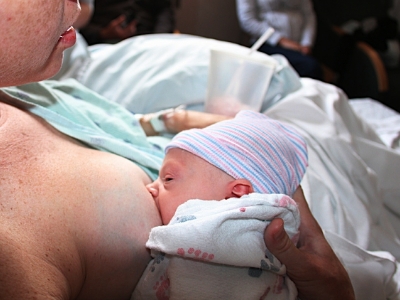How Long Is A Breastfeeding Session For A Newborn?

The breastfeeding session for a newborn depends on several factors. An average feeding may last 20 to 45 minutes during the newborn period. Newborn babies are often sleepy, so this length of time may need patience and persistence.
How To Know That Your Baby Is Hungry?

The best way to master breastfeeding is to nurse your baby when he or she seems hungry. There is no need to wait for tears. By then, your little ones may be uncomfortably hungry, especially if they cry for a long time. Even though your little ones are tiny, they will let you know what they need by:
- Opening their mouth
- Nuzzling against your breasts
- Making lip-smacking sounds
- Sucking furiously on that baby hand or your shirt, or your arm
- Sucking on the lip or tongue, which can look like sticking their tongue out
- Rooting, when a baby opens the mouth and turns the head to the side with the mouth open to find the food source, often after their cheek is stroked
- If your baby does cry, it will typically be a short, low-pitched wail that rises and falls
How Long To Breastfeed?
- Sessions typically last 20 to 45 minutes. Keep in mind, that’s on average. Your baby could take more or less time and need to feed for longer in the beginning and during growth spurts.
- Fully drain one breast. Preferably, at least one breast must be well-drained at every feeding. This is more important than being sure the baby feeds from both breasts. Wait until your baby seems ready to quit on breast one, then offer, but don’t force breast two. If the baby drains one breast and doesn’t want anymore, start with the other breast at the next feeding.
- Wait for your baby to signal. End the feeding by waiting for the baby to let go of the nipple. If your baby doesn’t, you’ll know to end the feeding when the suck-swallow pattern slows down to around four sucks per one swallow. Often, your baby will fall asleep at the end of the first breast and either awaken to nurse from the second or sleep through until the next feeding.

Factors That May Affect Breastfeeding Time
Some breastfeeding can take a full feeding in just 8 minutes. Others may need at least 20 minutes or more to get the same amount of breast milk.
Factors that influence the feeding time:
- Age: An older baby can typically get enough breast milk in a shorter period.
- Health: A premature baby or a baby born with a health issue may tire out easily while breastfeeding.
- Latch: A good latch helps a baby more effectively remove breast milk and therefore get a full feeding in less time.
- Alertness: A sleepy baby may not breastfeed as well or as fast as a baby who is awake and alert.
- Milk supply: If you have a low breast milk supply or your baby is going through a growth spurt, your baby may spend more time breastfeeding to try to get more breast milk.
- Flow: If your breast milk flows quickly and you have an active let-down reflex, there is more milk available for your baby right away.



